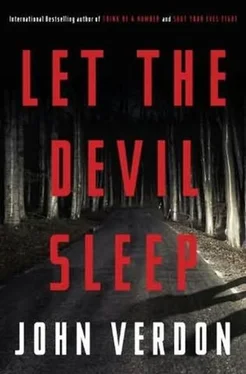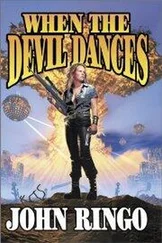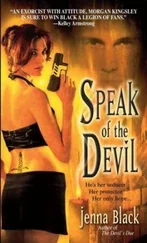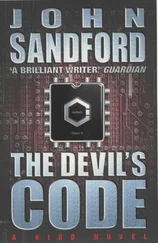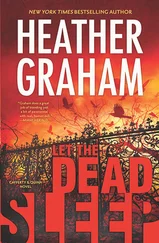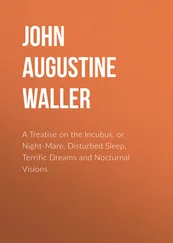“Can you think of anyone else who might want to get in the way?”
“No, I can’t.”
“So I’ve got an odd little mystery on my hands. I don’t suppose Agent in Charge Trout would be willing to talk to me?”
“Matt Trout? You must be joking.”
“Yeah, that’s me. Old laugh-a-minute Dave. Thanks for your time, Rebecca.”
The perplexed look was still on her face as she turned and went into the lobby.
Making Waves
Three young boys in red T-shirts and shorts were kicking a soccer ball back and forth on the perfect lawn at the edge of the lake. They seemed not to care that the sun had disappeared behind an advancing cloud bank, pushing early spring back into late winter.
Gurney stood up from the table, rubbing the chill out of his arms. Just about every part of his body was aching now from his fall the night before. The tinnitus, of which he had been aware only sporadically, now seemed more intrusive. As he moved a little unsteadily toward the door that led to the lobby, it was opened for him by a conservatively uniformed young man with an automatic smile and an indistinct voice that blurred his words.
“Excuse me?” said Gurney.
The young man spoke louder, like an attendant in a nursing home. “Just asking, sir, is everything all right?”
“Yes, fine, thank you.”
Gurney made his way back to the parking area. A foursome of golfers in traditional plaid pants and V-neck sweaters were just getting out of an oversize white SUV that reminded him of an upscale kitchen appliance. Normally the thought that someone had paid seventy-five thousand dollars to ride around in a giant toaster would have made him smile. But now it struck him as just one more symptom of a degenerating world, a world in which acquisitive morons were conniving endlessly to amass the largest possible piles of crap.
Maybe the Good Shepherd had a point.
He got into his car, sat back, and closed his eyes.
He realized he was thirsty. He looked into the backseat, where he knew he had a couple of bottles of water, but they were nowhere in sight, which meant they’d rolled off the backseat and under the front seat. He got out, opened the rear door, and retrieved one of the bottles. He drank about half of it and got into the car again.
He closed his eyes once more, thinking he might clear his head with a five-minute nap. But one thing Holdenfield had said kept interrupting his desire for oblivion.
You must be joking.
He told himself it was just an offhand comment-that Holdenfield had been referring to Trout’s self-important pretense of inaccessibility, not to his own insignificance in the world of active law enforcement-or that it was simply her brusque way of deflecting what she interpreted as a request for an introduction. In either case, brooding over it would be a childish waste of time.
But those were rational arguments, and there was little rationality in the anger he felt. Anger at the pompous control freak who purportedly would refuse to see him, at Holdenfield for being too wrapped up in her own priorities to intercede, at the whole arrogant FBI culture.
His mind was reeling with bits and pieces of Holdenfield’s lecture, her pattern-resonance concept of serial murder, the Good Shepherd profile, the sawed stair tread, Robby Meese’s insistence that Kim Corazon was dangerously unhinged, the bizarre Max Clinter, the repellent Rudy Getz, the goddamn red-feathered arrow in the garden. But amid all the confusion, his thoughts kept returning to that stinging jab: You must be joking .
What response would he have preferred? Of course he’ll meet with you. With your amazing NYPD reputation, how could Agent Trout not want to meet with you?
Christ! Was he that pathetically dependent on his reputation? On having his star-detective position in the world of law enforcement acknowledged? Whenever it was publicly acknowledged, it had made him uncomfortable. But now having it ignored was worse. Which led to another disturbing question:
Who was he without that position, without that reputation?
Just another guy whose career had run its course? Just another guy who didn’t know who the hell he was because the power structure that had given him his identity also had the power to ignore him? Just another sad ex-cop, sitting on the sidelines, dreaming of the days when his life had made sense, hoping to be called back into the game?
Good God, what self-pitying bullshit!
Enough!
I’m a detective. Perhaps I always was, and in one way or another I always will be. That’s a fact of my life-independent of the details of my paycheck or chain of command. I have a set of talents that make me what I am. The exercise of those talents is what matters-not the opinion of Rebecca Holdenfield, or Agent Trout, or anyone else. My self-esteem-my grip on life-depends on my own behavior, not on the reactions of a psychobabbling profiler or some bureaucratic fed I’ve never met.
He grabbed hold of this assertion, using it to steady himself, even as he sensed something excessive in its tone. He felt sure, however, that any level of conviction was better than none. And he realized that if he were to maintain his balance, like a man on a bicycle, he needed momentum. He needed to do something.
He took out his cell phone, accessed his e-mail, and once again opened the series of incident reports Hardwick had sent him.
Scrolling through them, he recalled that the real-estate agent-the one with the movie-star name-had been only a few miles from her home in Barkham Dell when she became the Good Shepherd’s fourth victim.
Barkham Dell was not far from Cooperstown. In the incident report, he found the exact location on Long Swamp Road, with annotated photographs of the point at which half of Sharon Stone’s face had been blown away and her car had plunged off the tarmac into the mire.
He entered the location into his GPS and drove out through the gates of the Otesaga’s parking lot-not with any major expectation of discovery but with a modest sense of getting back to the beginning, of finally getting his feet on the ground.
The first visit to a crime scene, even ten years after the fact, had an effect on Gurney he found hard to label. To call it stimulating sounded perverse, but it definitely intensified his senses. The chemical reactions it catalyzed in his brain had the result of making everything he saw there far more memorable than the sights and events of his ordinary life.
It wasn’t the first time he’d visited the scene of a murder committed long ago. A confession he’d once elicited from a serial killer included the murder of a teenage girl in a wooded area near Orchard Beach in the Bronx-a murder that had occurred twelve years prior to the confession.
Now, as Gurney drove slowly through the gentle leftward curve where Long Swamp Road moved away from the state highway toward Dead Dog Lake, he went through the same process he’d gone through at Orchard Beach-in his mind subtracting years of growth from the trees, erasing saplings and smaller bushes.
He had the incident-report photos to guide his adjustments. There had been no additions or subtractions of man-made structures. No buildings, no billboards, no telephone poles. The road hadn’t had a guardrail in 2000, and it didn’t now. Three tall landmark trees appeared virtually unchanged. The time of year, early spring, was the same then and now, giving the old photos an illusion of currency.
The position of the tall trees, combined with the photo notations and accompanying angle-and-distance measurements, made it possible for Gurney to locate the approximate position of Sharon Stone’s car when the bullet struck her.
He drove back along the road to the point where it was intersected by a road that connected with the state highway. Then he drove from that point to the point of the shot, and from there through two miles of bog and marshland, past Dead Dog Lake, through the Currier & Ives village of Barkham Dell, and another mile to the point where Long Swamp Road teed into a busy county route.
Читать дальше
